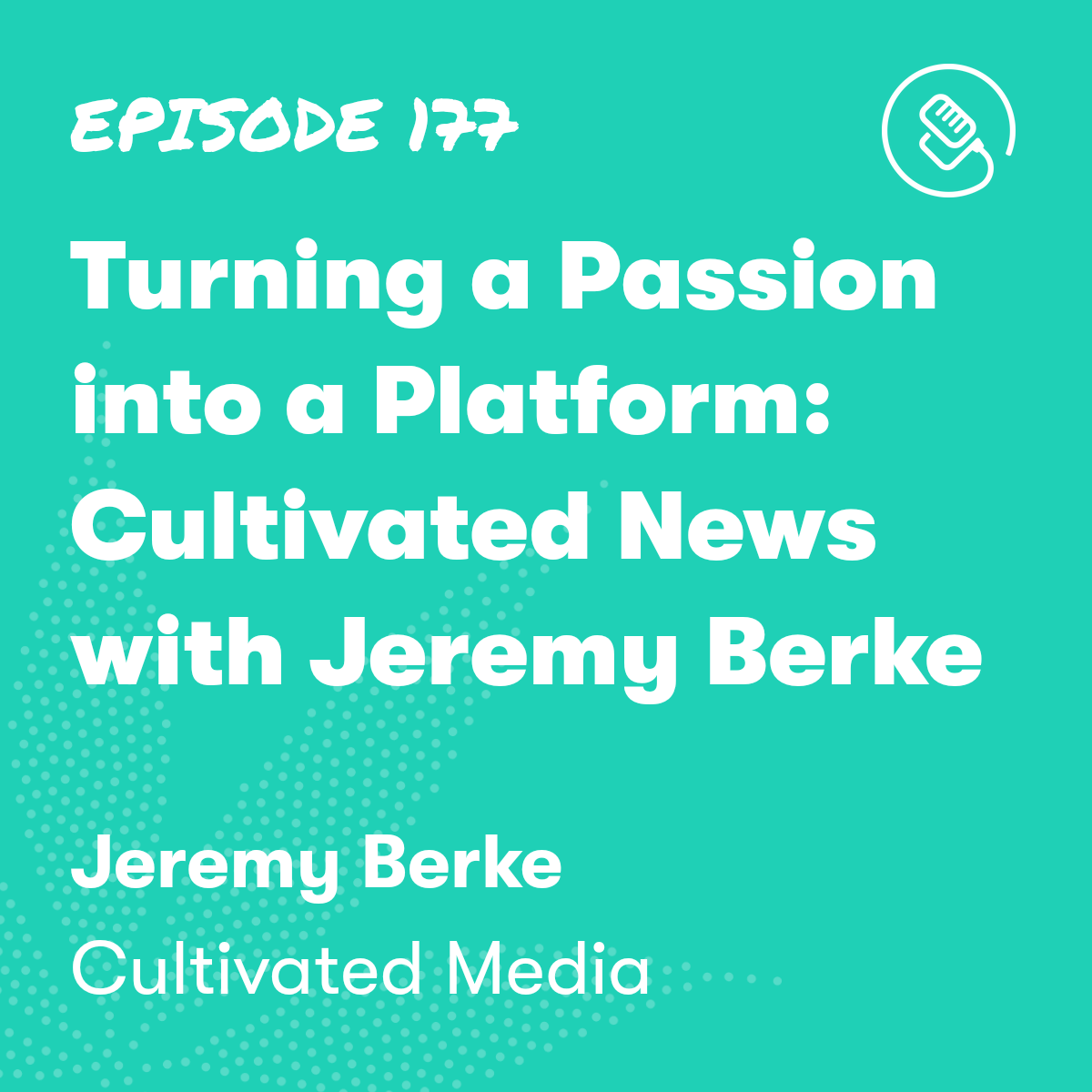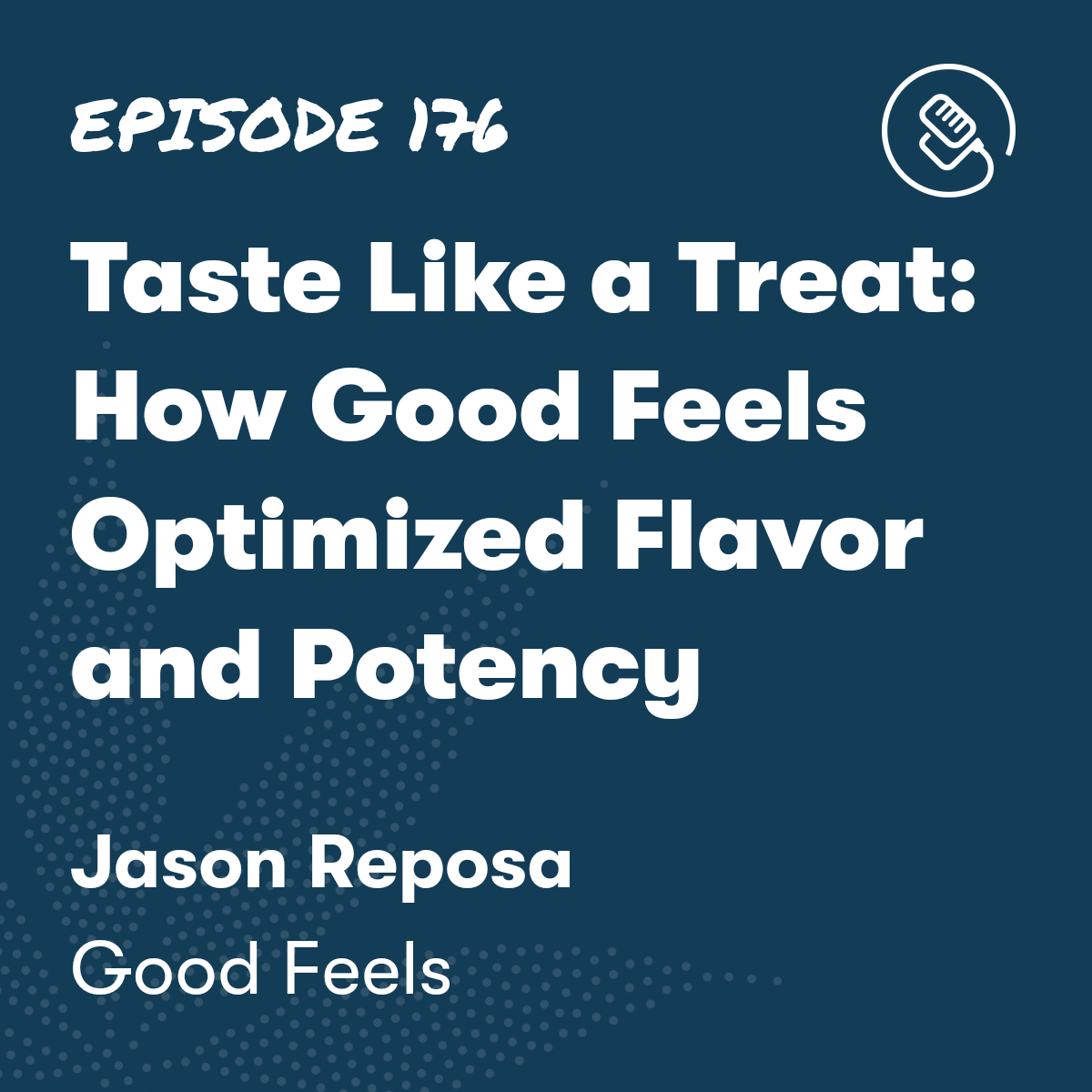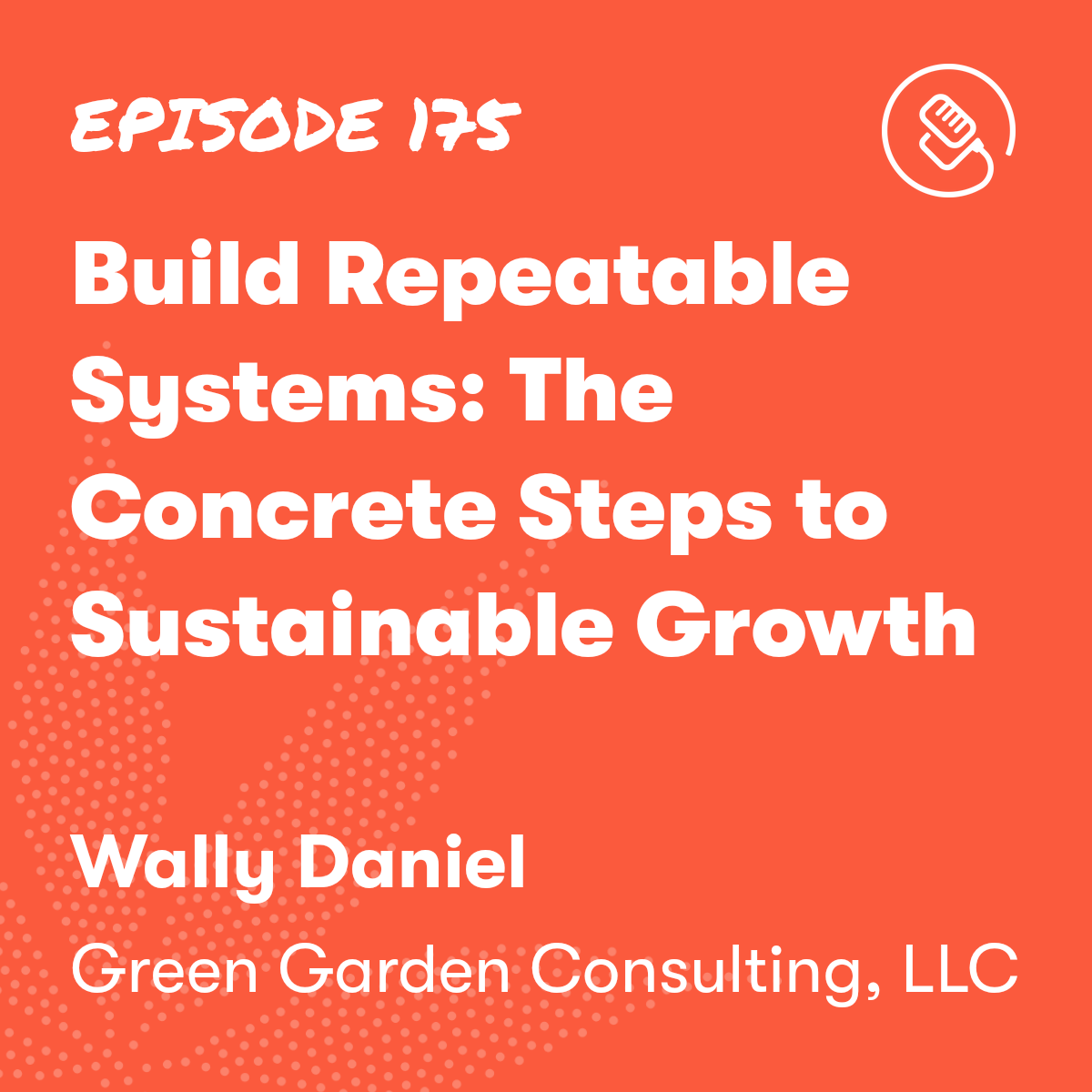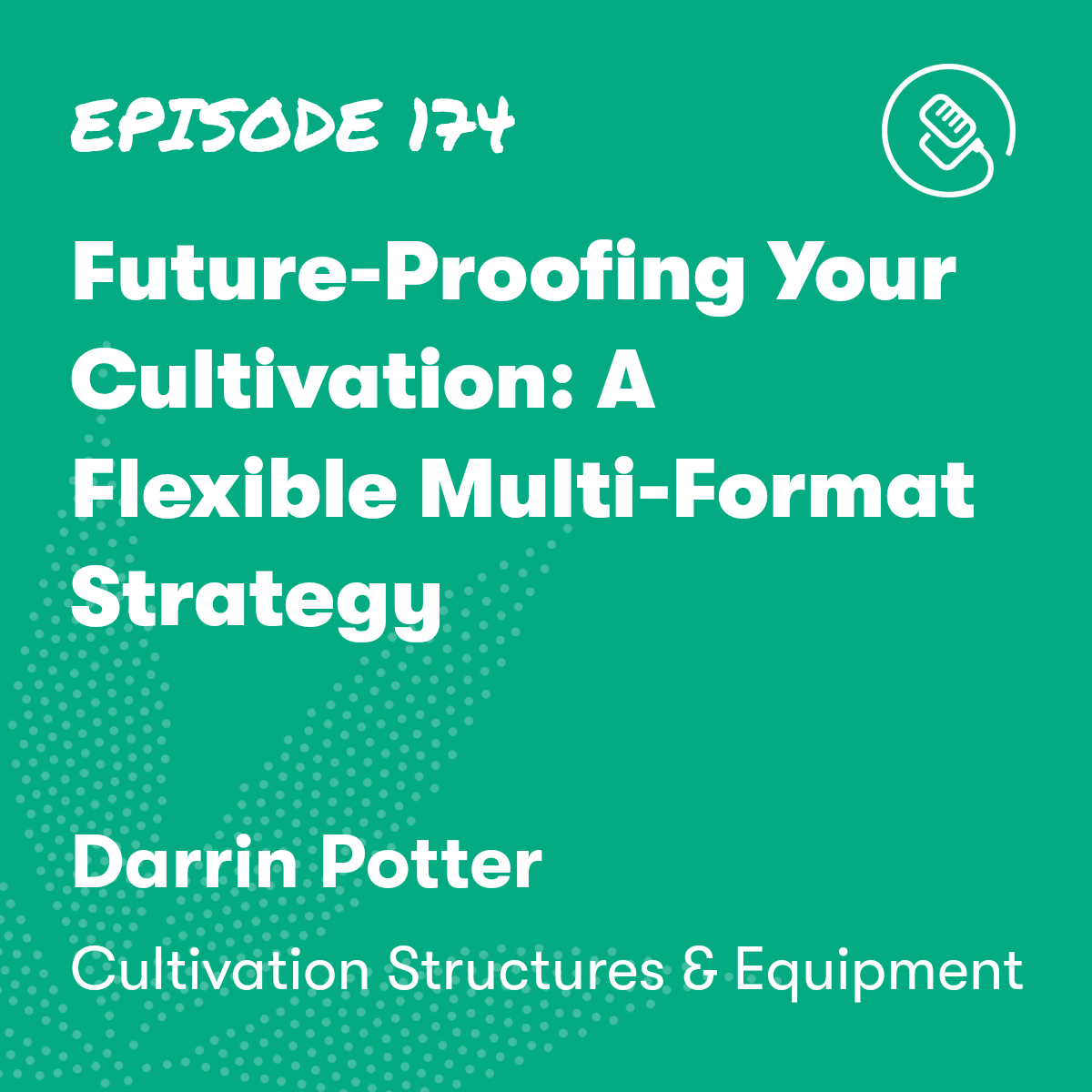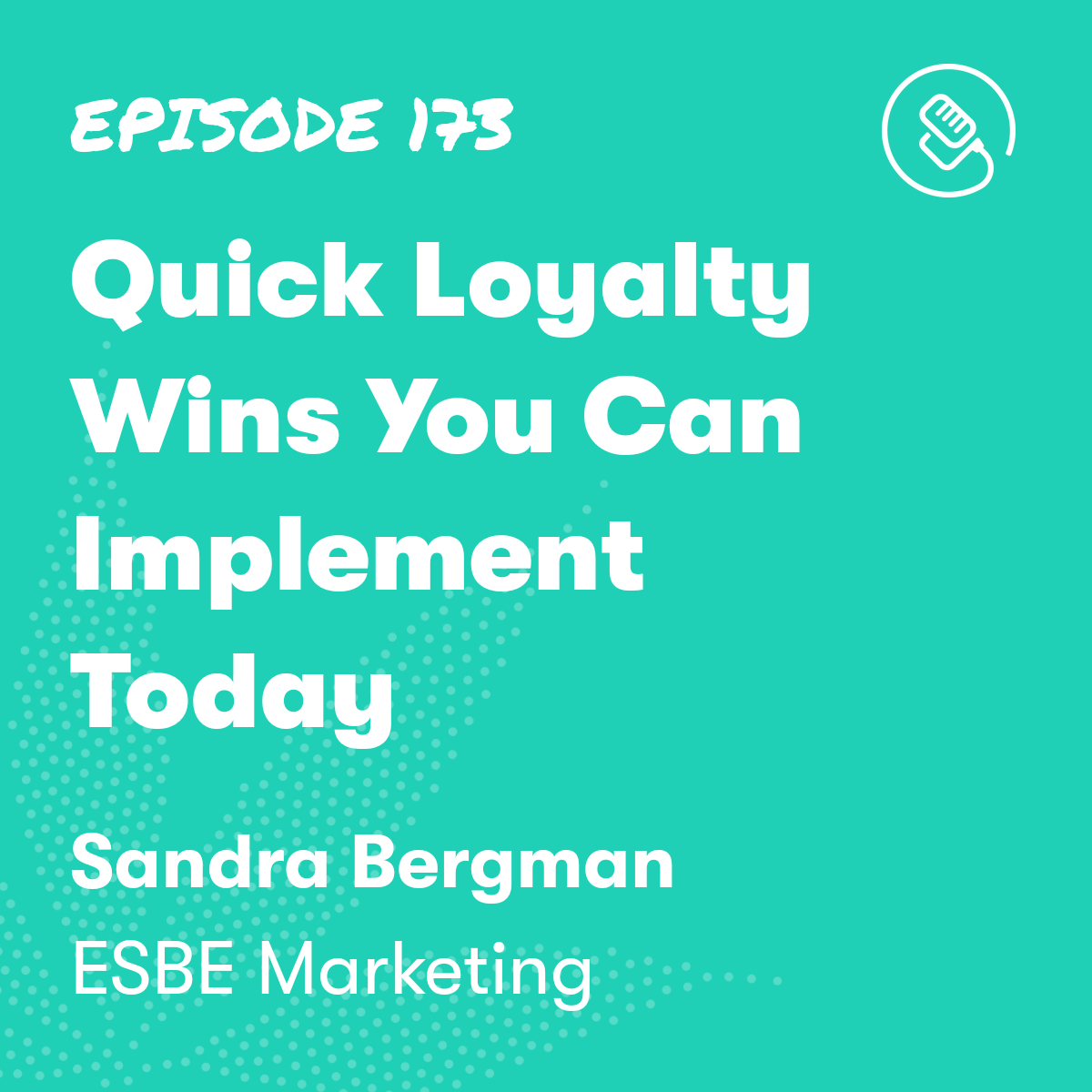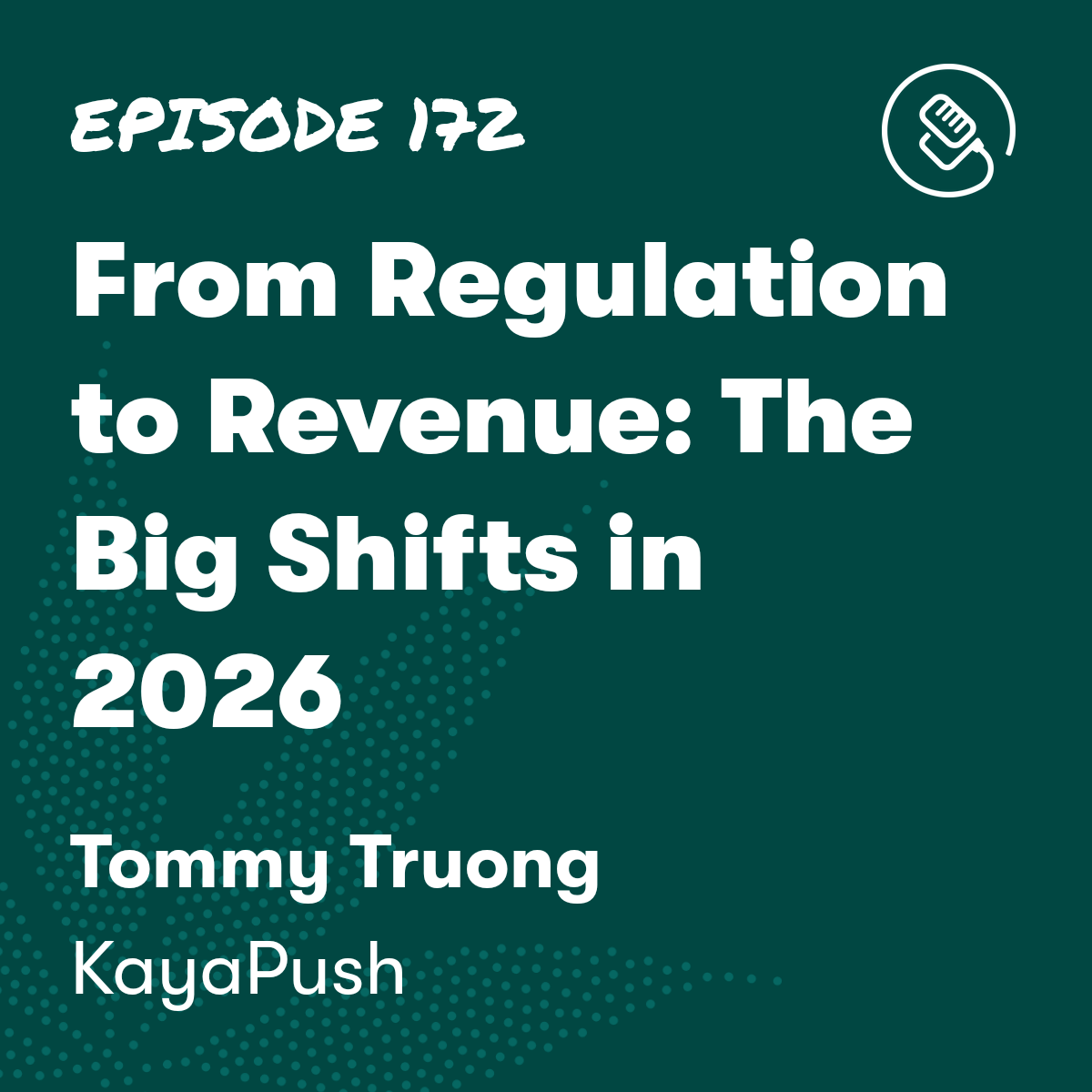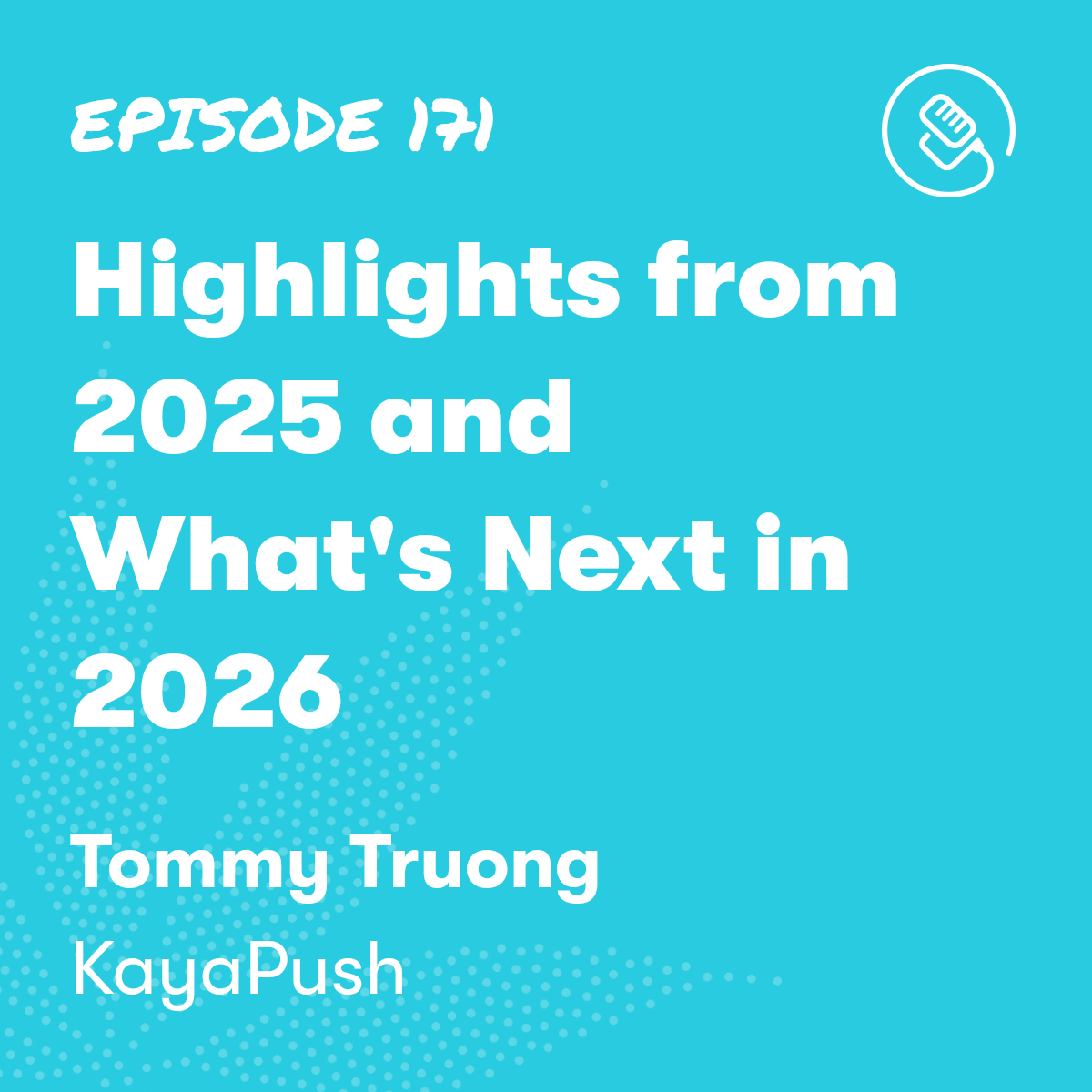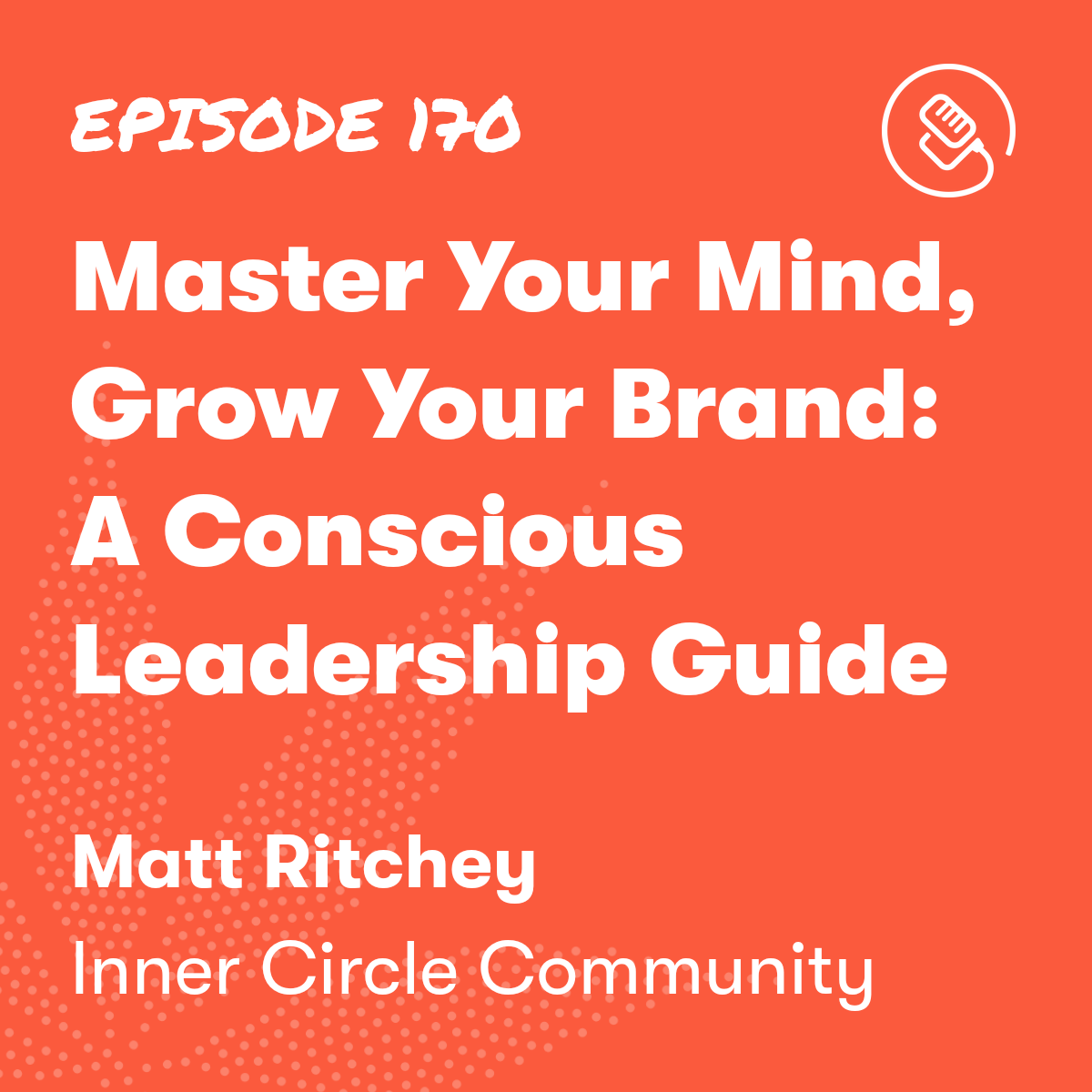
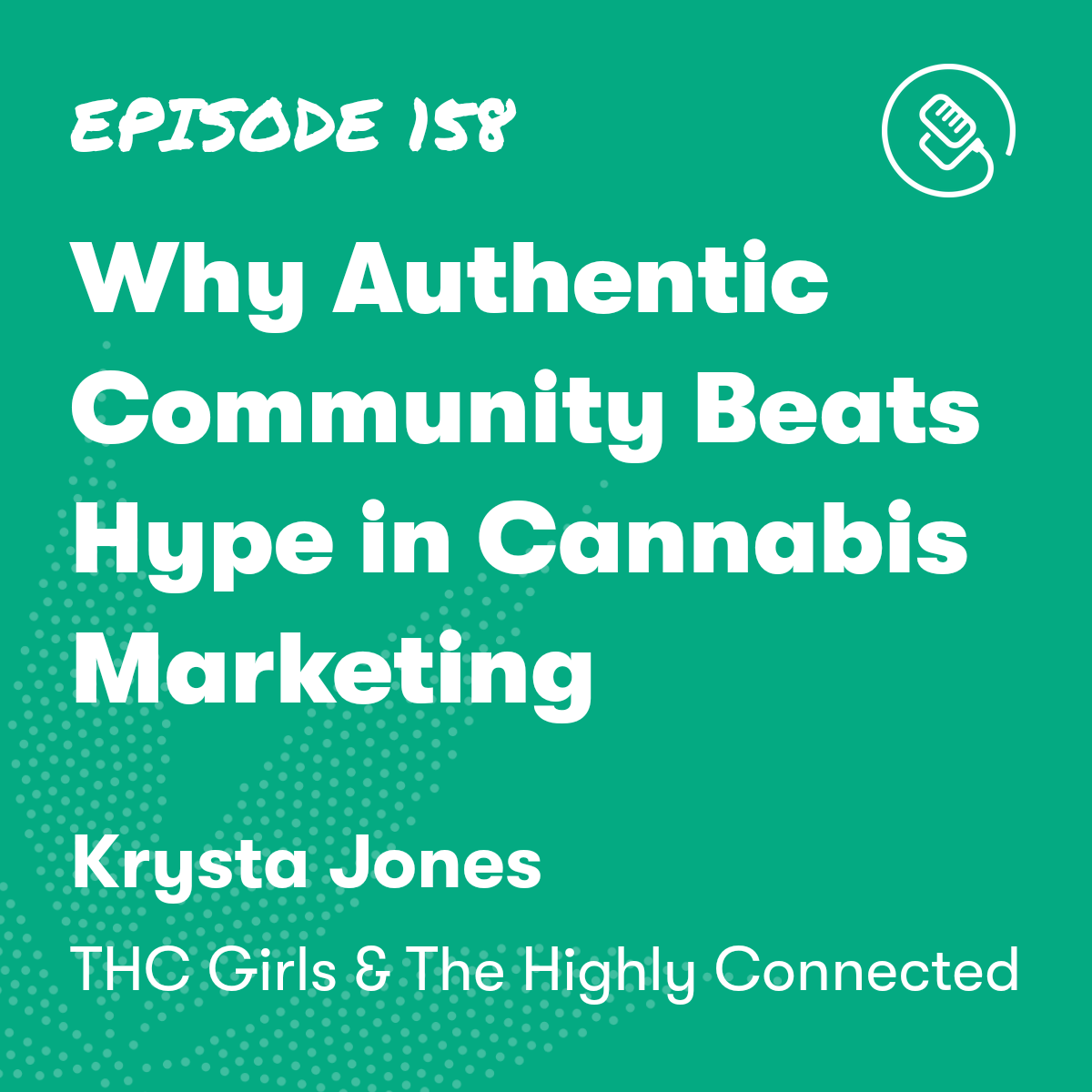
Why Authentic Community Beats Hype in Cannabis Marketing
Episode Description

Episode Transcript
Tommy Truong: [00:00:00] When you started the THC Girls, did it happen organically? The. Your identity to, um, to the market, or were you very intentional with the way that you guys moved?
Krysta Jones: Uh, you know, it happened super organically. I actually. Was, uh, you know, I'm just like 19 years old, 20 years old. And my friend was like, Hey, you'd wanna work in a indoor garden? And I was like, what is that? You know? And it just started to legalize in Colorado and I was like, okay. You know, so I'm just sitting there trimming, you know, going at it and I was good at it.
So I got pulled into the grow, you know, and then short, soon enough I got a key. And, you know, soon enough I was doing this for different houses and. Warehouses and all these different places, and I was just, you know, turning 21 ish, you know, going to the clubs and all these things. And naturally, I, I always have built community, but I've always thrown parties and [00:01:00] just been, uh, the one to kind of get my, my neighborhood out.
You know, let's go build it for and let's go make some ramps, whatever, you know. So yeah, it was very organic that, uh, as I became an adult. I just put two and two together. The, I would go out to the clubs and they were like, Hey, you know, come back. Bring all your friends and we, we will take care of you. And I, I didn't understood what that meant.
Right? I was like, what? You're gonna take care? What does that mean? You're gonna gimme bottles? You're gonna do this. You're gonna like hook me up. And so I started realizing, oh shit, this is valuable, right? Like, I have power in bringing all these people places, you know? So as I was working in the cultivation side.
I also got to listen to everybody talking about, oh, I can't sell product, and oh, we have so much inventory I can't sell. We don't have a way to market it and this and that. I'm like, that is so silly. I was just like, who has a problem selling product? You know? And so I was like, man, we'll have everybody smoking this.
Like, let me, let me put it out there like [00:02:00] that, you know? So. Um, since I was growing at all these different places, I had a lot of good relationships with the owners and the operators, especially for these small mom and pops places. And so we worked out a situation, you know, where that's where I created the THC Girl is I saw that I had a, uh, an act for putting these events together.
I actually started to, I tried to start a lighting company and in order to sell the lights, I needed to promote it. Right. So boom, we started throwing parties to promote it and I realized that that's what the value was. All these brands, they didn't have anywhere to put their marketing dollars, right? And I was really good at bringing them people that smoke and consumed.
So I just, uh, started presenting that opportunity early on and doing, uh, hood Lab. I don't know if you're familiar with Hood Lab and, uh, Adam and yeah, it, it. Shoot, 2014 is when I started doing the parties and stuff. So it organically happened. It just kind of, I just [00:03:00] was, uh, trying to pay attention and understand it.
And as that took place, uh, the shift in the markets just boomed. Right. So we were everywhere. Every dispensary I worked for, I would hire a team of girls. We'd have, we'd be all branded, we'd go give out coupons, you know, we'd talk about the product and it just kind of, uh, led me into different grows and operations.
And meanwhile, I was doing that. I was working in the cultivation. I got recruited in 2017 to go out to Oregon, and so I was able to really go out there and revamp the whole footprint out there. Being from Florida, I was already kind of doing that and traveling and stuff like that. So. It amplified and everything organically has happened.
Tommy Truong: Wow. So you actually started because you had your own tribe and you had your own brand,
Krysta Jones: yeah, yeah,
Tommy Truong: you leveraged your brand to help other brands sell through and, uh, get, really get a, a light shine on [00:04:00] them.
Krysta Jones: yeah. I, I mean I would, uh, you know, I have all this product and stuff 'cause I'm, uh, a customer, right. And, uh, I would have people leave reviews. Yo, you. Leave, leave the legal review. I, I work with legal. This is legal product, blah, blah, blah. You know, it's recreation. We're all 21. This is where I work, this is good.
Right. Reviews. And so just organically being out there as a voice, it really, really helped these, uh, places position themselves because a lot of people couldn't see, you know, they're in industrial places that are hidden and you can't advertise. So it was a struggle at first for those, those shops.
Tommy Truong: Wow. So that's, I, I had, I had no idea that that's kind of how you started. That's amazing.
Krysta Jones: Yeah. Yeah.
Tommy Truong: it's so true too. 'cause you mentioned being authentic and finding your strengths.
Krysta Jones: Yep.
Tommy Truong: Right? Where are you from? What are your strengths? You have to be authentic. People see through bullshit like.
Krysta Jones: Yeah, people could tell, you know? And it is too hard. [00:05:00] It's hard enough as is. Why do you want to go against the grains? Go join your tribe. You know what I mean? Support your people.
Tommy Truong: so how did you, um, how did your business evolve? You leveraged your, your tribe, really, and then what was next with these brands?
Krysta Jones: Yeah. Uh, so as far as really from there, when I got recruited in 2017, I went out to Oregon. You know, Oregonians, they don't take outta staters lightly, right? They, uh, they looked at us like we were from California basically. And I don't know if you know about the Pacific Northwest, but they're like, so it was interesting 'cause at first, you know, we also had these huge investors from the East coast come in, swoop us up, all from Colorado.
Bring us all there. They were, you know, huffing and puffing and wooing, which did not help our situation at all. Um, being that we were from outside of the, the state. And so at right as, uh, I got there [00:06:00] early stages, we were still building breaking ground. I mentioned Sandra, Sandra Gja, who is my director of marketing.
We. Tag teaming projects across the nation forever, inside and outside of the nation actually now. Um, so we were working out together in uh, Colorado, and she was supporting me just a hundred percent. I was supporting her. We didn't know what was going on, but we were just supporting each other 'cause we were both in like the nightlife, entertainment and, you know, promotion space.
So we would promote each other's events. When I got recruited and I went out to Oregon, I was the director of cultivation, I told him about Sanja. So we were able to bring Sanjay out there. So it was the C, the COO who recruited me, and then I was able to recruit Sanja. And so we went out there with like our little pack, and right away we started recruiting THC girls, ba, ba, ba, ba, you know, and brand ambassadors, which now brand ambassadors and models and all those things are heavy in the THC, you know, space.
However, it was kind of frowned upon in a sense [00:07:00] because it's like. It was so risque and taboo already that, oh, now there's girls, and ooh, what do they do? You know? But every, everything was really important to me as far as branding, education, and knowing what, you know, being productive, potheads, and still being fun and cool, but still, always business, right?
So we started recruiting all the quote unquote popular girls in Oregon, and we just started blowing up fast. And throwing events and participating, giving industry events just like we were doing in Denver together. We brought that to Oregon Industry Night. And so, um, early stages, respect my region was there.
Uh, we worked with a lot of early brands in the Oregon market and just throwing community events, supporting all the vendors and the people that we wanted to work with and leveraging the THC girls really gave us that access when it was one of the toughest times in Oregon to even move product. And so it was a great, it was a fun time for sure.
We, we
Tommy Truong: Oh wow.
Krysta Jones: foot greenhouse to play with.
Tommy Truong: So you, you, [00:08:00] you promoted, you really killed two birds of one stone. You grew THC girls and leveraged that to promote the brands that you were working with.
Krysta Jones: Yeah. It, it all goes hand in hand. I feel like, uh, you, you kind of need one with one needs, one the other. Right.
Tommy Truong: Mm-hmm. You know? Um, how did you find hosting events translate, post-event sales? What was that connection?
Krysta Jones: It's all about the follow through. It's all about the follow through. You can have great events, you can put the works, uh, for everybody, right? And people can take great content and not talk about it the next week. I, when I started doing the marketing, I realized it was kind of like in, you know, when you're younger and you go out in high school, you know, you, you miss one week and nobody calls you back.
You know, they're, they've moved on to the next group of kids that's wilding out. So I think it's the exact same thing with the follow through, with the invites, with [00:09:00] anything, just having that strategic follow through and again, seeing, you know, Hey, what's up Tommy? I, I saw you last week. You know, what's, how are we gonna connect moving forward?
And then having that. A frame, the, the framework that you'll follow through. Okay. You know, um, having those touchpoints on social media even right. To where you continue to stay in, in each other's lives, but you know, when the sale is gonna happen, it is gonna happen. I don't believe in being so forceful with it, but I do believe in being intentional, just like you were saying, you know, and putting intention behind every single thing that you're doing.
Tommy Truong: How did you manage that? Uh, because what goes through my mind is you host an event for thousands of people. You know what I mean? They've all tried X product and now the follow through happens thousands of relationships.
Krysta Jones: Uh, it, it is, it becomes a lot and sometimes it is hard and overwhelming to remember everybody in the, in the conversations, you know, uh, they repeat a lot. Um, but I, I [00:10:00] have become really good at the follow up, uh, being that I created the app. The app is my database at this point. Up until then, I've just collected and been sharp on my CRM.
I have thousands and thousands and thousands of contacts from over the years, and I have my system and I do not, not follow through that system. When I participate at the event, I look at it as an investment and then I'm, every time I'm looking at the ROI, even from coming out here to go to Atlantic City, you know, how much is it the overhead?
You know, how many people are potentially there? What do I need to walk away with? And who do I need to walk away with, right? Because that's one of the biggest keys too. I could get a thousand contacts, but if none of them are the contact that I'm looking for, it really doesn't matter. So being very, very specific and knowing the important people to follow up with.
Um, I definitely take content. I try to do the interview thing too, and I can remember, obviously sometimes you see people fast, um, but taking any quick selfies [00:11:00] and highlighting and amplifying them to post event as well. So that way it's not just a constant sale. Um, those are some strategies that we do. So that way it's effective.
We're highlighting our network. We're supporting our network, and we're keeping in touch top of mind. So that way when the opportunity comes and we're ready to play,
Tommy Truong: Can, can you walk me through the unit economics of a brand hosting an event? An event
Krysta Jones: like, like,
Tommy Truong: if, if I was a brand and I'm thinking, Hey, THC girls, you guys are going to help.
Krysta Jones: hmm.
Tommy Truong: Really, really promote our product on a grassroots level. We, we want to tell a story and we want to tell a story to, to our audience.
Right? Um, what does that look like? Like what should, how much, how much should I really spend and what should I expect on the back end?
Krysta Jones: It if you, and it's really depends on the brand too and the positioning and how hard they have to work if they have organic pull or not. Um, but I think that, [00:12:00] I would say at minimum to really see the results that people desire to see, right? People want, you know, they want these things to happen all quick and easy, and.
Well, if in order to make a decent impact, I believe around five, $10,000 a month, you should be putting into your marketing, your consumers, you know, your quality and energy and your effort that you're building into your brand. If you have, I, I also believe that sometimes you could put so much money in and you don't know what's going on and that, you know, you're exhausting yourself and your energy and not making right decisions.
So it really depends on. You know, what, what's at stake and what's the campaign? But I believe with a good five to $10,000 budget, you could really see some performance, especially if you have leverage into that space. Um, depending, no matter what kind of business or brand, uh, you know, marketing is very similar across the board.
It just depends on the, the niche and the product. Right. [00:13:00] Um, and as well as e-commerce is different. I think that this is a more so of like a retail. And going into a shop, it, it becomes a very different, uh, battle when it's e-comm, especially when now you have such a broad demographic of people that you can target and getting really specific on where you spend that energy.
So it's a, it's, it's a puzzle to. Piece together for any brand. There's not one way. And it takes time. I think it takes three to six months easily to really see what's working. And only if you're being consistent, right? If you're not being consistent, you're not gonna see that performance. You're not gonna see the growth that you're wanting to see, you're gonna think it's not working, right.
So, but yeah, I would say three to, or I'm sorry, 10, uh, five to 10, uh, easy. That's, I mean, you should be putting that back into your brand for sure. Easy.
Tommy Truong: That's, you hit the nail on the head. It's a 20 mile march and it's just like [00:14:00] business, you know, business. It's the boring consistency in business I find that makes businesses successful. And the Splash one event, you know that, um, that doesn't really work.
Krysta Jones: No. It was like, oh, that was cool. Like cool. Who are they again? You know?
Tommy Truong: So what would a, what would a nine month campaign look like or even a year campaign look like if a brand or a retailer wanted to build a tribe in their community and what are the early signs of success where, Hey, we have something here, we should march forward.
It's not ultimately success money in the bank that's down the road, but these are the things that we should me measure today to know that we're on the right track and we're making the right decision.
Krysta Jones: I think that, obviously sales is easy to track, I think. Um, but sometimes the analytics speak louder than the sales and can also be a good way of projecting, you know, if you are to [00:15:00] do this and amplify it, what that would look like. I think having those touch points with your customers and that communication and the education and on a small level again, virtually is great.
There's a lot of tools that are virtual and free and very, uh, you know, they can accommodate even a small budget. And if you, what we did in, in Portland, you know, we were throwing monthly indus industry events. And that's exactly what I think the any brand really should be doing. If they really want to capture that audience, if they really wanna support their vendors in, in a sense of like a farmer farmer's market type.
Uh, event where you're showcasing, you're educating, you're participating, you're communicating and providing that community experience, that's gonna be where you see that long-term play being very, very successful.
Tommy Truong: If, if somebody wanted to host an event and wanted to bring in partners and keep. [00:16:00] Really spread the love, but also keep the cost down. How would, what should their be approach be like? What are the potential partners that they're not even thinking about that could be part of this move? Mm-hmm.
Krysta Jones: Yeah, there's a lot of, uh, I think everything needs a strategy. It's great that you say that because I feel like a lot of people are just like, oh, you know, I'll get this partner, I'll get this partner. They're not really thinking like where they're sourcing it from. Like, could that person even benefit from being a partner?
Or are they just doing it? 'cause they're buddies, right? And now they're diluting the situation of, oh, this actually works. Right? So I think that the strategic partnership has to be strategic. You know, if that's somebody you're gonna purchase from, if that's somebody that is gonna purchase from your crowd, right?
Um, having that referral base or that leverage back and forth. Maybe they have the venue access and they need people to come there. We, you know, I used to do that a lot early on. Well be being that we have this big network, I, you know, I didn't want to come out of pocket for a huge venue. They didn't want to come out of [00:17:00] pocket for a huge marketing team.
So we meet in the middle and create a relationship that makes sense. So if the relationship makes sense, people will do it. But sometimes people are just shooting, you know, at random stuff and it doesn't necessarily, how could that person make their money back? Right. How can this make sense? And if they're just doing it to support.
That's fine. You know, that's cool too, that people wanna support. But at the end of the day, where's my money? You know, the ROI is super important and then it's not everything, um, dollar for dollar, but it has to physically make sense in order for a brand to say, yeah, I wanna participate. It's worth my time.
Right. So.
Tommy Truong: Yeah, def and, and your way ensures a long lasting partnership.
Krysta Jones: Correct, yes. I, I don't wanna quick flip. I don't wanna, you know, chase a billion relationships. I wanna find the right people that when we do things, it, it pops, it converts, it does the things that we need. So that's what I shoot for every time when I'm building [00:18:00] a partnership or putting any kind of events together for a client.
Tommy Truong: What, what are some of the events that you, you found work really well? If I was struggling today as a brand, I have a small tribe, for example, but. You know, I'm having a hard time bringing people in and getting people really excited about what we have to offer. Where do I start? What? What should be my thought process be?
Krysta Jones: What, where, what can you leverage people like giveaways, people like, uh, good times. Free stuff. If you're trying to do something in person, I think, uh, if you, you are basically gonna do the labor, right? Everybody wants a good scenario and a good situation, but nobody wants to run around and do it. So if you are at that, if you're at that point, then.
Sign up and do the legwork because a lot of people will pour into you. They just don't wanna also have to do the work. Right? And so if you could find those partners that have those [00:19:00] capabilities and you know that you can create a conversion for them, then go to work, right? I think that you. And, and once you're in a scenario, you can hire that service out, a project manager, whatever that might look like, but I think that there's a huge void to fill.
That way you can get into the space or into that role.
Tommy Truong: That's a really good point. That is so true.
Krysta Jones: Yeah. Thank you.
Tommy Truong: Yeah. No, that is so true. 'cause it's, it's like you're point with meeting in the middle, right? What do you have to offer?
Krysta Jones: Yeah.
Tommy Truong: So what is it that you have to offer? That's number one. And, uh, meeting in the middle. Middle. And I'm sure that somebody else has something that.
Can offer that needs, you know, what you're offering.
Krysta Jones: Yeah, it, it's been very successful for me as I, even as I, uh, travel state to state, you know, knowing that we have that reach, that, uh, exposure and connecting and sometimes the trade isn't as beneficial or doesn't always work out. But again, if that conversion's there for both [00:20:00] parties. And then there's opportunity to work together, then that's where that leverage starts to be very, very important.
Sometimes more, more important than money.
Tommy Truong: You mentioned something that I think is very foreign to a lot of people is how intentional and what is the game plan, post party or post event, because the event itself is just an event. You
Krysta Jones: say what?
Tommy Truong: particularly with the trade show, the work happens before the trade show and the work happens after the trade show.
The trade show is three days. You know, the event is one night, what happens afterwards? What is your game plan? And you probably have things really dialed in, uh, to a science on making sure that the event was worth it.
Krysta Jones: Yes, I do. I have gotten very well good at that. Um, so prior to the event, I am posting my attendance. I am blasting travel notices that I'm gonna be in that state. If there's other [00:21:00] ancillary things that are going on, I'm especially alerting my network. Hey, I'm going to your city. What is there to do? And leveraging those existing net uh, relationships to say, you know, someone's like, Hey, you know, I got a podcast to plug you into.
There's an event. Oh, we could have you host here. And that's pretty much what happens when I do those things prior to the event on social media, like last night I made a post saying, Hey, you know, these are the three things to do at the event. I'm going to knee cam, my team's meeting me there. If you're going tap in, um, I post on my app, I post in the group chats, so I'm very proactive.
Before I even step foot towards the event, it's very, very important. I'm going and following all the speakers, all the brands, all the logos, anybody that's important, throwing any of the after parties, pre parties, RSVP, and for all that kind of stuff. That's all prior to the event. Once it's the day of the event, I'm making sure I, I know who I want to [00:22:00] talk to.
I'm making sure I have all my equipment and my tools. And I'm making sure to remind myself constantly, uh, even if I get tired, I'm here to take content. I'm here to connect. I'm, you know, I'm very zoned in to what I need to do at that moment. And then once the event's over. You know, you go back home and everybody forgets to reach out and follow up and they don't even know what they need to follow up because they didn't take any notes.
So when I'm at the events, I take the business card or whatever I'm doing, if they don't have a business card, we're following them. I screenshot it or I text message them our picture and I say, Hey, this is Krysta, let's connect about this this week. And so I'm already sit sending them that message.
Positioning that and reminding both of us later that week that that's what we wanted to connect about. And then after, about like two, three days after the event, because everybody needs to get back home. They have families, they have stuff going on. I'm se I'm bumping the [00:23:00] message and I'm sending them an email.
So that's really my process. I'm inviting them to my Tuesday call. The last Tuesday of every month, we're having our virtual call. It's for our members. We invite you exclusively this time to come join us and, you know, repeat the step. If they don't, uh, come and join us that time, I'll invite 'em next time.
So, yeah, it's, it's a routine. I stick, I stay on.
Tommy Truong: Do you know that you are a professional? That's professional level. And I, I feel as though a lot of entrepreneurs, you know, when you start a business or when you're trying to create, if you're a creator, the back of my mind, I always think to myself, Tommy, are you a professional today? How professional are you today?
Because there's levels to this game, right? There's the Kobe Bryants of the world. That's the, that's the Mount Rushmore of being a professional. And there's the Vince Carter's of the world where he's a professional too, but he's not Kobe's level, right.
Krysta Jones: Yeah.
Tommy Truong: [00:24:00] Uh, yeah. What you laid out is just a science. If I was a brand and I had, you know, we, we spoke about this earlier.
There's hundreds. The event was successful. Hundreds of people came in. They, uh, enjoyed the product. They had a really good time. Now what,
Krysta Jones: Mm-hmm.
Tommy Truong: now what?
Krysta Jones: We're, I'm, I'm following and looking at the notes and I'm reaching out to them to see if they have the. What they say they can deliver, right? I am doing my homework. I'm saying, oh, oh, this guy wants to take all over Jersey and he wants to have the best, you know, edibles or whatever. Who is he? Does he even have the backing to do this?
Right? What did he say to me in our conversation? Was it realistic or was it this dream that he patted me on the back and said, Hey, you know, um, I've been promised so much in this space and I've. Seeing a lot of people not deliver. So I'm [00:25:00] very, very, very, uh, my triage game is very good. I'm looking and, and I'm doing some digging and I'm seeing like, is this person even worth my time be before I really heavily go ham, a lot of people are like, yo, let's do this.
Oh, you know, I want you to start a company with me to do this and that. And it, it's become a situation where it happens more often than not. So really looking into them and seeing are they worth my time? You know, where am I focused at? Is this something that, Hey, you know, I should back off of some of my leads, right?
This is gonna happen, right? And if this is happening, I need to prioritize it. So it just really depends. But that's what I'm doing post-event on my own. Uh, just really focused on, on seeing who can follow through and who we can deliver for.
Tommy Truong: That's amazing. That's if you had, and you mentioned this too, if you were doing a B2C, uh, event and you wanted [00:26:00] to. Follow through on either, is there a strategy that brands should have with the consumers that, that were at their event? What's the strategy to collect everybody's, because I'm thinking through, I'm like, okay, well you have to, one, you have to collect everybody's contact.
Two, you wanna make sure that they experienced your product and three post event, maybe leave a review or maybe join a loyalty program. Or maybe there's. know, or maybe invite them to, to the, to another event,
Krysta Jones: Of course. Yeah.
Tommy Truong: that, that our, one of our partners is, is promoting.
Krysta Jones: Yeah. And give and giving them some leverage, right? Uh, well, for, for us, always, it's so important that you collect the data, right? We wanna know who's in the party, especially, we're all adults and usually our parties are private parties. And, uh, we navigate an avenue that kind of says you're responsible for yourself, right?
Waivers and forms. And [00:27:00] responsibility, things like that. Um, I've been able to now maneuver that all through my app. So when we actually have parties, you show you're highly connected, you're a part of our network that way. I already know you have done these things. And usually we still have an RSVP. It's typically free unless we have a specific, uh, experience or entertainment going on.
Um, but basically we leverage the app. So we could collect the data so that we can remarket and retarget and have 'em consistently notified when we do things. If you don't have that situation set up, uh, collecting the content, whether you do or not have that situation set up is very, very important.
Getting people's organic reactions and experiences. At the location. A lot of people just do lifestyle content and you know, not necessarily getting the, oh my God, that was good, or, oh, you guys do great, you know, and pumping that out. So that's something that I highly recommend as well. And then beyond that, really, um, [00:28:00] just depends, uh, especially for the B2C, I think having a special offer and exclusivity for whatever occasion it was.
Right. If you, if you came to NECANN, you get 50% off this, right? And then that way you can track those conversions. You also can entice them in a specific way. So there's a lot of flexibility and creativity to have these things tracked, but it does take time and energy and effort. And then again, even then, follow through.
Once you get that data right, you still have to follow through and plug in that system.
Tommy Truong: Yeah, it's, there's a lot of, there's just so much work to, to get an ROI, I always think to myself, Hey, you're spending this much money on the event itself. How much work are you doing? Surrounding the event to make it successful. And a lot of people, I find, put all their energy into the event and not enough energy around their [00:29:00] event, and that's almost as important.
Krysta Jones: They mi that you miss. I mean, if that's the case, you might as well not even do the event, save your money and go buy, you know, something for the community. Give out free ice cream or something at your shop. Um, but I think the people that actually go and put that TLC and that constant, um, love in every single situation, they're gonna see that ROI.
And I think that one of the biggest things that brands need to realize and understand too, it's like you're giving away, you know, or you're spending, you know, just like you said, the overall overhead is a $5,000 event you are giving away or trying to sell penny joints. How can you make that money back?
It just physically isn't possible. You're gonna have to get sponsorships or some kind of leverage other areas so that you can sell those penny joints. And at the end of the day. Was it that, you know, what was the point of that? Are you gonna make the $10,000? How many joints do you have to sell to make that $10,000 back?
And now you're [00:30:00] mad at the marketing and it's not the marketing's fault, it was the strategy. You know what I mean? So I think that that's something that the business owners really need to take a look at and say, okay, cool. Like if I step into this space, if I spend 5,000, how can I make that five and really 10,000 back?
Right? So. It, it, it's, it's a lot more than just throwing in a party and throwing an event and shouting out dollars. There's some math to be done and some serious follow through that, just like you said, is added expenses, you know, and if you're not taking into consideration that full overhead, then you can get frustrated.
You might not understand the true value.
Tommy Truong: Krysta, if somebody wanted, um, to host an event and wanted to reach out to you, what does that look like?
Krysta Jones: Shoot, you could just download the Highly Connected app and there's a button that says, let's esh. And so you could just fill out your goals and what you'd like to talk about and we reach out to you [00:31:00] immediately.
Tommy Truong: Are you available across the nation? I mean, I'm sure you fly a lot, right?
Krysta Jones: Yes, yes. I just was in Denver last week for a huge, uh. We weed maps, uh, customer appreciation event actually. So I was just in Denver. I'm in, uh, Jersey, Philly area right now. I'll be back in Miami and I'll be participating in the All Pro C Lab. Shout out to Robert. He always looks out. Uh, so yeah, so I'm, I'm all over the place.
I could be anywhere that, that makes sense.
Tommy Truong: Do you help brands build out not just that event, but really the. The strategy, like the one year, I always find if you're gonna do just one event, then why?
Krysta Jones: Oh yeah, it's, you know, in fact, moving forward, I, I think I mentioned to you, I'm doing insurance now. Um, so, you know, having some of my attention pivoted from the space in a sense, uh, I'm really only taking on clients that come 2026 that want to have that consistent Q1, Q2, Q3, Q4. [00:32:00] Relationship. That way we can actually see huge results.
Because one-off projects and just doing stuff real quick, it's a lot of work for not the result that people want. Right? And so in order to really deliver and inject a brand or have a community that stands for something, you need that time. So moving forward to 2026, we are only working with brands that can move that way.
If not, our community is open for those who wanna plug in and who we can support. That way,
Tommy Truong: Krysta, aside from the app, how can people find you online?
Krysta Jones: uh, you could find me at kjones.life or you could, uh, find me at Krysta Jones on LinkedIn or on Instagram. It's MTHR. FKN Jones, uh, the, the highly connected, the high country, the T with t, h, c, those are all my brands. I'd love to [00:33:00] connect with anybody that has some good intention and good momentum on any of them.
Tommy Truong: Awesome. Krysta, thank you so much for joining me today.
Krysta Jones: Yeah, man, I appreciate it. It's been awesome and I look forward to talking more.
Tommy Truong: That's a wrap, guys, for this episode. I, I feel like we live in a time machine. I cannot believe the Emjays is just around the corner. I, it was just, we just did it and it's here again. Time flies. I want to thank everybody, uh, your continued support. We've been nominated again this year in the podcast category.
We started Kaya Cast three years ago. With the intention to help entrepreneurs in our industry grow and scale their business, and it's been quite a journey. I've had a blast hosting. I've had a blast getting to know all of our guests and I've learned quite a bit. So I hope you guys got as much [00:34:00] value in our podcast as I have hosting it.
I want to thank you guys so much for your support because legit, we started this for you, and without you guys, we would not continue. So thank you so much. Let's, let's take it home this year. If you have two minutes, please, please click on the link, uh, in the podcast description and vote for us. Again, I, I, I want to thank you guys so much for.
For your support. It's been, it's been a fun journey and I'm so grateful that I'm doing this, that, that we are doing this and that, and hopefully it has helped you guys in some way, shape or form grow and scale your business. So like always. Until next time, guys, take care.
Thanks for listening to the Kaya Cast Podcast. We hope you enjoyed the show. Don't forget to subscribe to our podcast [00:35:00] in your favorite podcast or visit our website.

